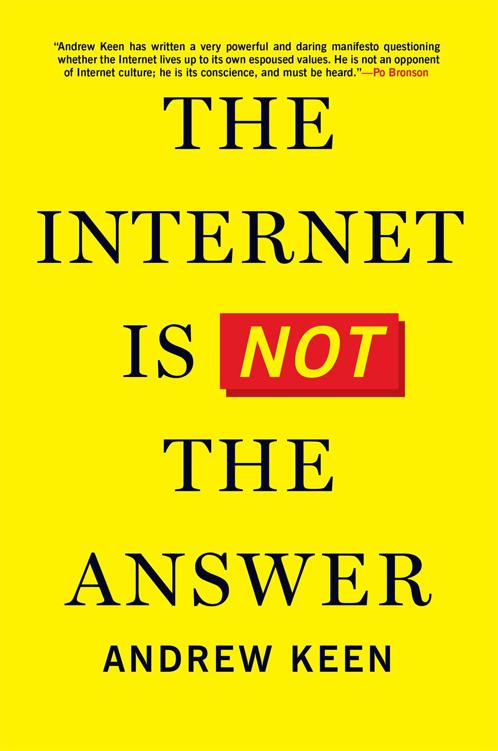
The Internet Is Not the Answer
کتاب های مرتبط
- اطلاعات
- نقد و بررسی
- دیدگاه کاربران
نقد و بررسی

December 1, 2014
Keen (Digital Vertigo) presents an damning indictment of the Internet and digital technology, arguing that they have failed to deliver on their promises of fostering greater democracy and openness. Keen acknowledges that new technology is reshaping society but asserts, “It hasn’t transformed the role of either power or wealth in the world.” Instead, we’re seeing “deepening inequality of wealth and opportunity.” Keen points repeatedly to the Internet’s destructive impact on jobs, noting that the private sector employs fewer and fewer people, even as profit levels rise; new technology companies are destroying jobs without creating new ones. And the Internet fosters voyeurism, narcissism, and misogyny; it enables unprecedented and untold information gathering and surveillance. Keen has a deep understanding of technology and concedes that “the Internet is not all bad.” But he argues that the negatives outweigh the positives, and that the self-important Silicon Valley entrepreneurs of the 21st century “have much in common with the capitalist robber barons of the first industrial revolution.” Though Keen misses several opportunities to genuinely, journalistically engage with the examples he draws, he offers a well-written, convincing critique of Silicon Valley, and a worthy read for anyone with an email account. Agent: George Lucas, Inkwell Management.

February 1, 2015
Keen (Digital Vertigo; The Cult of the Amateur) argues that today's Internet business models have harmed society by ushering in a vastly unequal distribution of economic power and value. He contrasts the industry's early years--a result of government and academic research and featuring a lack of monetization--with its "disruptive" recent incarnation. He declares that the Internet became monetized--and detrimental to most of society--starting in the 1990s, roughly with the rise of the modern web browser and companies such as Amazon and eBay ("Web 1.0"). Today, Keen argues, users provide content to sites including Facebook and Instagram free of charge, while the companies sell our data to make billions of dollars for their handful of executives. These technology companies also have few employees compared to businesses that were subject to the models of the past. Keen acknowledges that the modern Internet is not all bad, but insists it can do better. He argues for more oversight and laws, such as France's "anti-Amazon" law that prohibits free shipping on discounted books. A well-written work, though topics sometimes appear disjointed. VERDICT A must-read for technophiles and business leaders, or those curious about technology's societal effects.--Leigh Mihlrad, FDIC Lib., Washington, DC
Copyright 2015 Library Journal, LLC Used with permission.

























دیدگاه کاربران